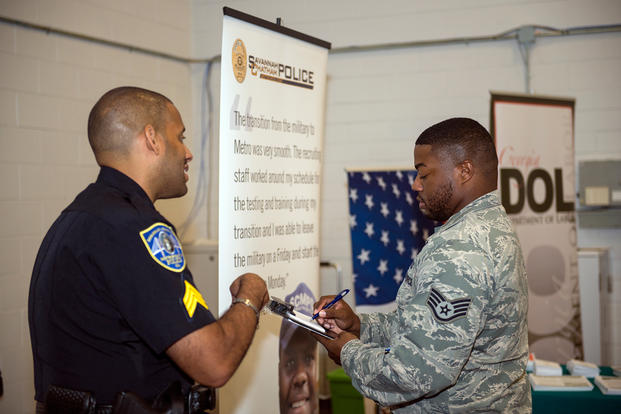Many job seekers believe that "more is better" when it comes to sending out resumes, going to job interviews and collecting networking contacts online. Instead of focusing on quality and strategy, some adopt a "shotgun" approach to finding their next job, hoping to catch something of value in the spray.
Unlike a job interview, an informational interview is not about pitching you for a specific opportunity. When you interview for a job, your focus is on selling your skills, experience and value related to the company and open position. On the other hand, an informational interview is a learning opportunity where you act more like a reporter than a potential employee.
5 Reasons to Do Informational Interviews
1. Research an Industry.
Are you leaving the military as a C130 mechanic and looking for a career in organizational development (OD)? It helps to learn what that field entails, how someone becomes skilled at OD and where the opportunities lie. An informational interview can give you a deeper perspective over an industry or field of interest than you can gather with online research.
2. Learn the Company Culture.
Let's say you have your sights set on working for a large defense contractor. You know the kind of work they do, the contracts they win, but you aren't familiar with what it's like to work there. An informational interview can help you understand the culture, work style, promotion schedules and teams that succeed at that company.
3. Get a Sense of the Job.
In addition to understanding the industry and the company, what exactly does the job entail? Informational interviews with people in that role, at different companies, can help you assess whether you'd enjoy that work, if you need additional skills or training and what the long-term career potential of that job would be.
4. Expand Your Network.
For many transitioning service members, growing a professional network is a real challenge. Perhaps the people you know share your military experience, and you seek to know professionals in the private sector? Asking for informational interviews around industries, companies and jobs empowers you to meet new people who you can then cultivate networking relationships with afterward.
5. Look for Patterns.
Throughout my career, I've conducted many informational interviews and the greatest benefit I've received is in the patterns of the responses I receive. I use informational interviews to solve a challenge, answer a question or pivot a strategy, and in doing so, I restrain the conversation to questions around those topics.
For instance, when I started my business 10 years ago, I met with anyone who'd successfully initiated a company and would meet with me. In each of those many conversations, I always made sure three questions were asked and answered:
- What was the best thing you did (when starting your company)?
- What do you wish you'd done differently?
- What is your advice for me?
After many meetings, I compared the responses and see the patterns of decisions to pursue, choices to avoid and advice offered from successful business owners
For many of you, informational interviews could prove more valuable than job interviews if you are not versed on the industries, companies and jobs you're interested in. Learn from others and their experience and use your civilian career goals to filter the responses.
Lida Citroën is an international reputation management and branding specialist, and CEO of LIDA360. She serves her corporate clients with personal branding, reputation management, online positioning and reputation repair strategies and implementation programs.
Lida is passionate about helping our nation's veterans navigate the military-to-civilian career transition and is a popular speaker at military installations and events on veteran hiring. Her best-selling book, "Your Next Mission: A personal branding guide for the military-to-civilian transition," offers veterans the tools to move successfully to meaningful civilian careers.
Lida is a regular contributor for Military.com and Entrepreneur.com, and is the recipient of numerous awards for her service to our veterans.
Find the Right Veteran Job
Whether you want to polish your resume, find veteran job fairs in your area or connect with employers looking to hire veterans, Military.com can help. Subscribe to Military.com to have job postings, guides and advice, and more delivered directly to your inbox.












